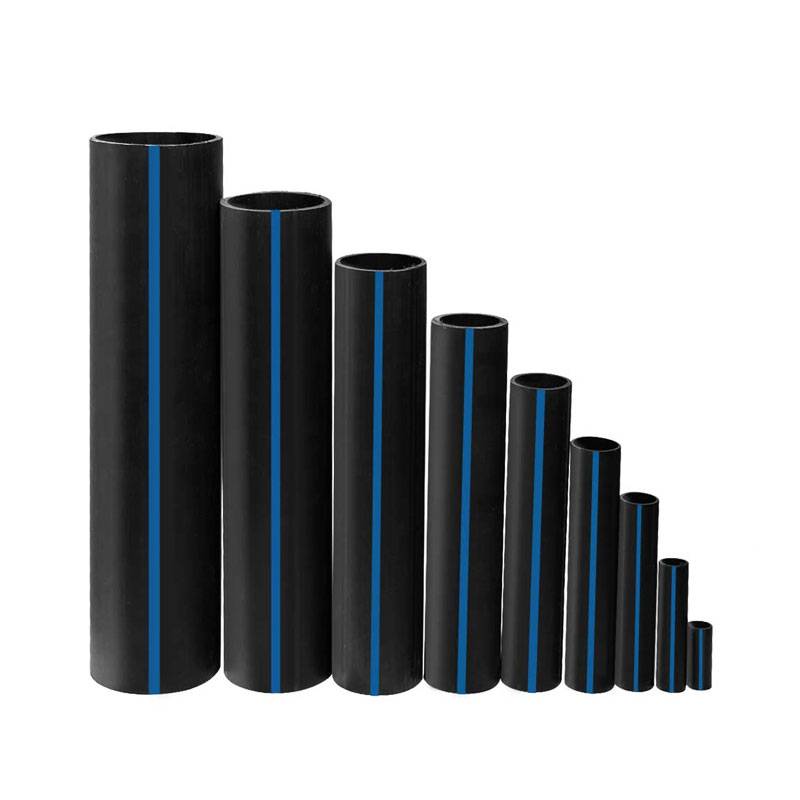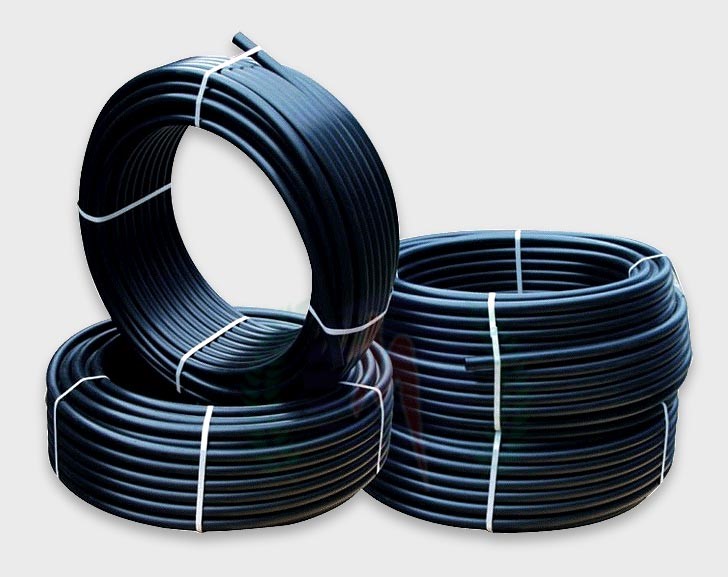How Midland TX HDPE Pipe Fittings in Stock Save Time
Wiki Article
Comprehending the Key Benefits of HDPE Pipeline for Water and Wastewater Administration
Making use of HDPE pipe in water and wastewater monitoring offers many advantages that merit consideration. Its phenomenal durability and lengthy life expectancy make it a favored selection for many tasks. Furthermore, the material's resistance to deterioration and chemical damages enhances its integrity in different environments. The advantages prolong beyond simply durability and resistance. hdpe pipe in stock Midland TX. Exploring its cost-effectiveness and ecological effect reveals much more engaging reasons for its extensive fostering in modern facilitiesExtraordinary Durability and Longevity

HDPE pipe attracts attention for its remarkable toughness and long life, making it a recommended selection in water monitoring systems. Constructed from high-density polyethylene, these pipes can withstand significant pressure and tension, making certain dependable performance in time. Their robust nature enables them to withstand extreme ecological conditions, consisting of temperature level variations and dirt activities, which can create other materials to fail.
The lifespan of HDPE pipelines frequently exceeds 50 years, providing a cost-effective service for towns and industries alike. Additionally, the material's light-weight residential properties simplify installation, reducing labor costs and durations. This resilience reduces the need for constant fixings or replacements, even more boosting its financial appeal.
In water administration applications, the dependability of HDPE pipes means fewer disruptions and boosted service continuity, making them essential to lasting facilities development. The mix of longevity and long life strengthens HDPE's function as a cornerstone in reliable water administration solutions.

Resistance to Corrosion and Chemical Damages
While many products surrender to corrosion and chemical damage with time, HDPE pipes display impressive resistance, making them perfect for numerous water monitoring applications. This resilience stems from the molecular structure of high-density polyethylene, which is inherently non-reactive and does not wear away like steels or degrade from direct exposure to severe chemicals. Therefore, HDPE is extremely reliable in settings with hostile substances, such as wastewater systems that may contain acids, bases, and organic solvents.
Additionally, HDPE pipes can stand up to ecological variables such as dirt level of acidity and saline problems, better enhancing their suitability for varied applications (American Plastics HDPE Pipe Manufacturing). Their capacity to keep structural honesty with time lowers the threat of leakages and failings, which is crucial in making sure the safety and security and dependability of water distribution and wastewater management systems. Consequently, the resistance to deterioration and chemical damages substantially adds to the overall effectiveness and long life of HDPE piping options
Cost-Effectiveness and Economic Advantages
When taking into consideration the monetary ramifications of water administration systems, the cost-effectiveness of HDPE pipes comes to be obvious. These pipelines offer reduced setup and upkeep costs contrasted to typical materials like steel or concrete. Their lightweight nature streamlines transport and setup, resulting in decreased labor expenses. In addition, HDPE pipes show a long life expectancy, typically exceeding half a century, which equates to less replacements and long-lasting savings.The resistance of HDPE to corrosion and chemical damage decreases the need for costly repair services and substitutes. The pipes additionally sustain effective water circulation, decreasing power prices related to pumping systems. By reducing leaks and water loss, HDPE pipelines add to significant financial advantages for districts and industries alike. In general, the preliminary financial investment in HDPE piping can generate significant financial returns over the lifespan of the water administration system, making it a prudent option for lasting framework growth.
Ecological Sustainability and Lowered Influence

Convenience and Flexibility in Setup
As a result of their unique residential properties, HDPE pipes supply impressive adaptability and flexibility in installment, making them appropriate for a variety of applications. Their lightweight nature permits simpler handling and transport, decreasing labor prices and setup time. HDPE pipes can be bent and shaped to fit different surfaces and project demands, which is particularly beneficial in testing atmospheres.In addition, their resistance to corrosion and chemical damages permits setup in varied setups without the need for specialized protective great post to read coatings. The capability to fuse joints develops a constant, leak-free system, improving the total honesty and integrity of the installation. HDPE's versatility likewise fits ground activity, decreasing the danger of damages in locations prone hdpe tubing to shifting soil. Generally, these characteristics make HDPE pipes not only flexible yet additionally a recommended choice for water and wastewater management systems.
Frequently Asked Concerns
How Does HDPE Pipeline Contrast to PVC in Water Monitoring Applications?
HDPE pipeline offers superior flexibility, resistance to corrosion, and longevity contrasted to PVC. Its lighter weight facilitates easier installation, while its long life-span lowers substitute prices, making HDPE a favored option in water administration applications.What Is the Life Expectancy of HDPE Pipeline Under Common Conditions?
Under typical problems, HDPE pipelines can have a life expectancy ranging from 50 to 100 years. Their resilience and resistance to corrosion add to their lasting efficiency in different applications, making them a reliable selection for facilities.Are HDPE Pipeline Recyclable After Their Life Span?
Yes, HDPE pipelines are recyclable after their service life. American Plastics HDPE Pipe Manufacturing. They can be processed and repurposed right into new products, greatly reducing ecological impact and advertising sustainability within the industry, making them an environmentally friendly selection for piping optionsWhat Is the Installation Process for HDPE Water Lines?
The installment process for HDPE pipes involves site preparation, trenching, pipeline fusion or mechanical signing up with, backfilling, and stress testing. Correct techniques ensure a durable and effective system for delivering water and wastewater efficiently.Can HDPE Piping Be Used for Both Drinkable and Non-Potable Water Equipments?
Yes, HDPE pipes can be utilized for both safe and clean and non-potable water systems. Their convenience, longevity, and resistance to corrosion make them appropriate for numerous applications, ensuring risk-free and effective transportation of water in various contexts.Report this wiki page